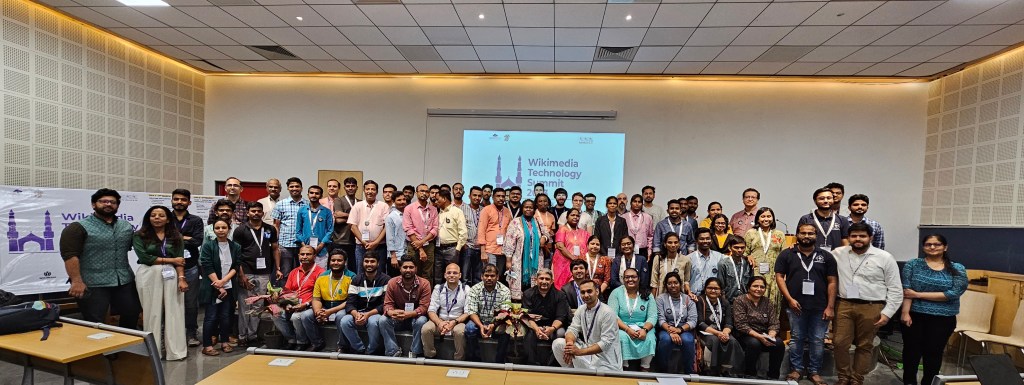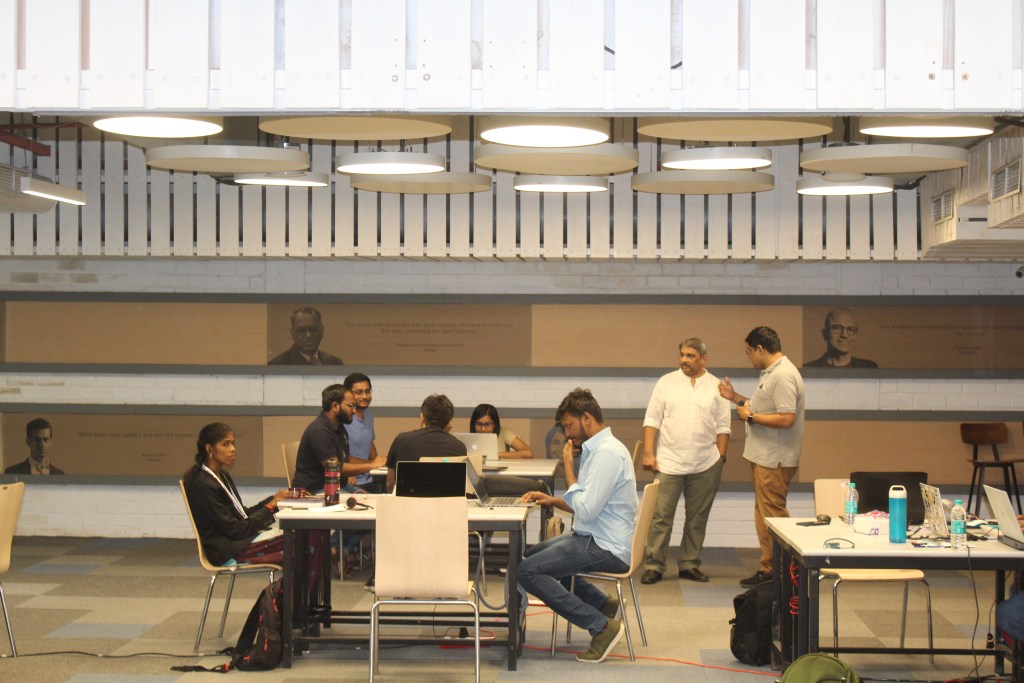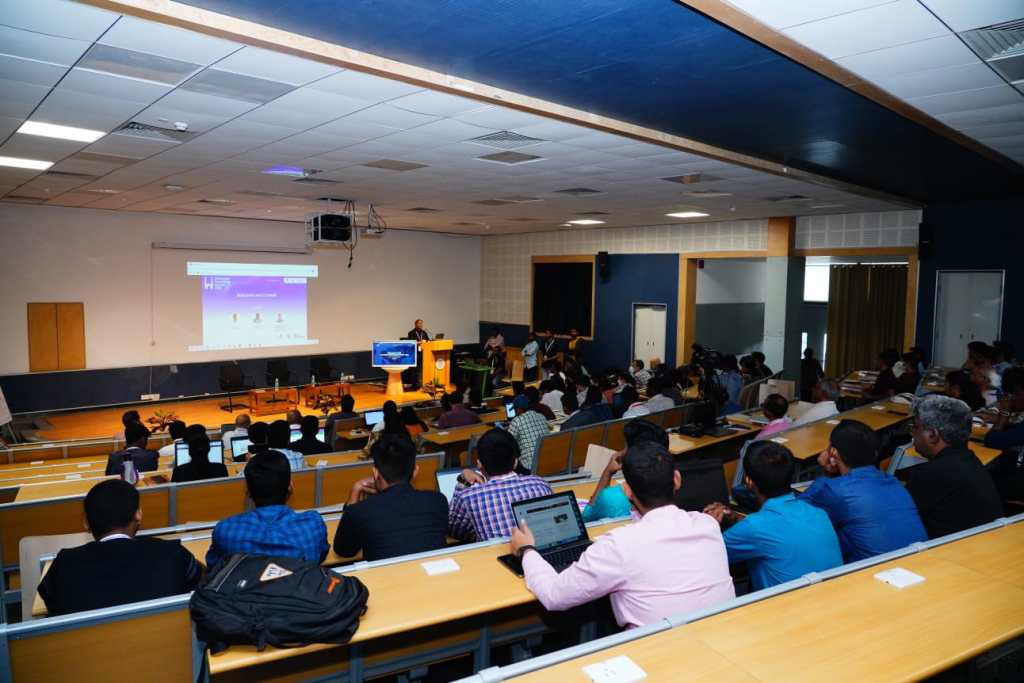
International Institute of Information Technology, Hyderabad (IIITH) and the Wikimedia Foundation, the non-profit that operates Wikipedia and other free-knowledge projects, successfully concluded the 2nd Wikimedia Technology Summit at IIIT Hyderabad campus today. This one-of-a-kind event enabled discussions around developing the future of the internet, forging enduring alliances, and engaging in open discussions about the cohesion between technology and open access to knowledge.
The summit was organized by IIITH’s Indic Wiki Project – an initiative funded by The Ministry of Electronics and Information Technology (MEITY), and supported by the Government of Telangana, to enhance the online presence of Indic language encyclopedias. Organizers from IIITH, Indic Wiki Project, and staff from the Wikimedia Foundation worked together in the planning, designing, and execution of the summit; and collaborated on various aspects of Communications, Program Design, Event Execution, and panel moderation.
The 2nd Wikimedia Technology Summit aimed to foster collaboration and innovation in the field of Indic language technology, with a particular emphasis on promoting open-source solutions and building a community of like-minded individuals and organizations.
We have a large number of people speaking Indian languages but the amount of ‘useful’ digital content available in these languages does not represent our cultural and linguistic richness. It is our immediate need to make knowledge available in our languages. Crowd-sourced encyclopedias like Wikipedia make huge contributions to enhancing the knowledge, awareness, and rationality of people. This summit addresses important issues in enriching content and knowledge available in human languages and the ways to overcome challenges.
Prof Vasudeva Varma, Centre Head, Language Technologies Research Center (LTRC), IIIT – Hyderabad

The event kicked off on 2 March with a full-day mini-hackathon that brought together numerous open-source developers and programmers working on Indian Wikimedia projects to deliberate, create tools, and collaborate on MediaWiki to further the technology available for working on Indic Languages.

Following the mini-hackathon, the Summit featured a series of talks, and panel discussions on 3 and 4 March on topics such as the future of open knowledge, the creation of sustainable knowledge systems, digitization of content, and digital humanities – all with a focus on Indic languages. It also featured keynote addresses by leading experts from the field of Indic language technology, learning researchers, and technology platforms.
As we think about ways to increase digital adoption and participation, it is important for us to recognize the importance of local languages. Since multilingualism is a way of life, it has to be represented and celebrated! So much good work is being done across the South Asia region that deserves recognition. This Summit is an opportunity to learn from and connect with each other on all of these efforts.
said Selena Deckelmann, Chief Product and Technology Officer at the Wikimedia Foundation during her virtual keynote speech
Over the course of the event, which brought together top researchers, open technology enthusiasts, Wikimedia volunteers, and members of WikiClubs (a project that aims to form youth clubs at educational institutions to enable the creation of free and open content) – over 150 attendees had the opportunity to participate in a wide range of topics to discuss best practices and set the future course of knowledge access in regional languages on the Internet.
For more information about The 2nd Wikimedia Technology Summit 2023 please visit the official website at https://indicwiki.iiit.ac.in/summit-2023/ (photos/videos from the event will be made available soon).

Can you help us translate this article?
In order for this article to reach as many people as possible we would like your help. Can you translate this article to get the message out?
Start translation